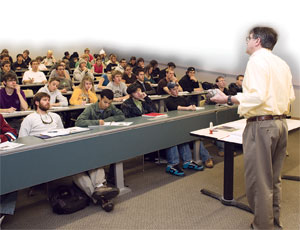There are many ways to learn as well as teach. The ultimate ambition of any teacher or professor is to instill a passion in students to make the world a better place and put that passion and knowledge to work on real projects that make a difference. ENR’s Award of Excellence winner Professor Bernard Amadei has succeeded in achieving that goal with the formation of Engineers Without Borders-USA, which now is a nationwide juggernaut with 12,000 members in more than 225 campus and professional chapters.

Meaningful projects do not have to be large in order to have a huge impact on people’s lives in developing countries or regions with special needs. Clean drinking water, sanitation, decent housing, efficient transportation, sustainable energy and knowledge transfer are basic building blocks of life and health, and this is an area where EWB-USA members thrive.
Engineers who love their profession need to be relevant. EWB-USA allows students and engineers to partner with developing countries worldwide to design and implement sustainable engineering projects to improve residents’ quality of life while involving and training them. The projects are low cost, replicable and sustainable, using designs, materials, skills and technologies that are appropriate to the region and culture in which they are located.
Like seeds placed in carefully tilled soil, knowledge and goodwill can grow into a global network of friendship and cooperation, which surely is a better alternative to sowing the seeds of hate and despair. Take your pick, the costs are about the same, but the former pays dividends for generations while the latter just sets the stage for future conflicts.
EWB-USA itself was born from Amadei’s small seed of hope at the University of Colorado that he could improve the life of Belize villagers by providing clean drinking water and a pump to relieve the drudgery of hauling river water by hand. Today, many more hands are planting those seeds across the world.
The concept of EWB-USA is not a new one, and others in the construction industry should think about what kind of contribution they can make to the cause of humanity and goodwill. As Amadei’s many students over the years have learned, a passion for a subject and knowledge of what it can produce in the real world opens many doors to professional and personal success and satisfaction. That is great for individuals, companies, the industry and the world.
